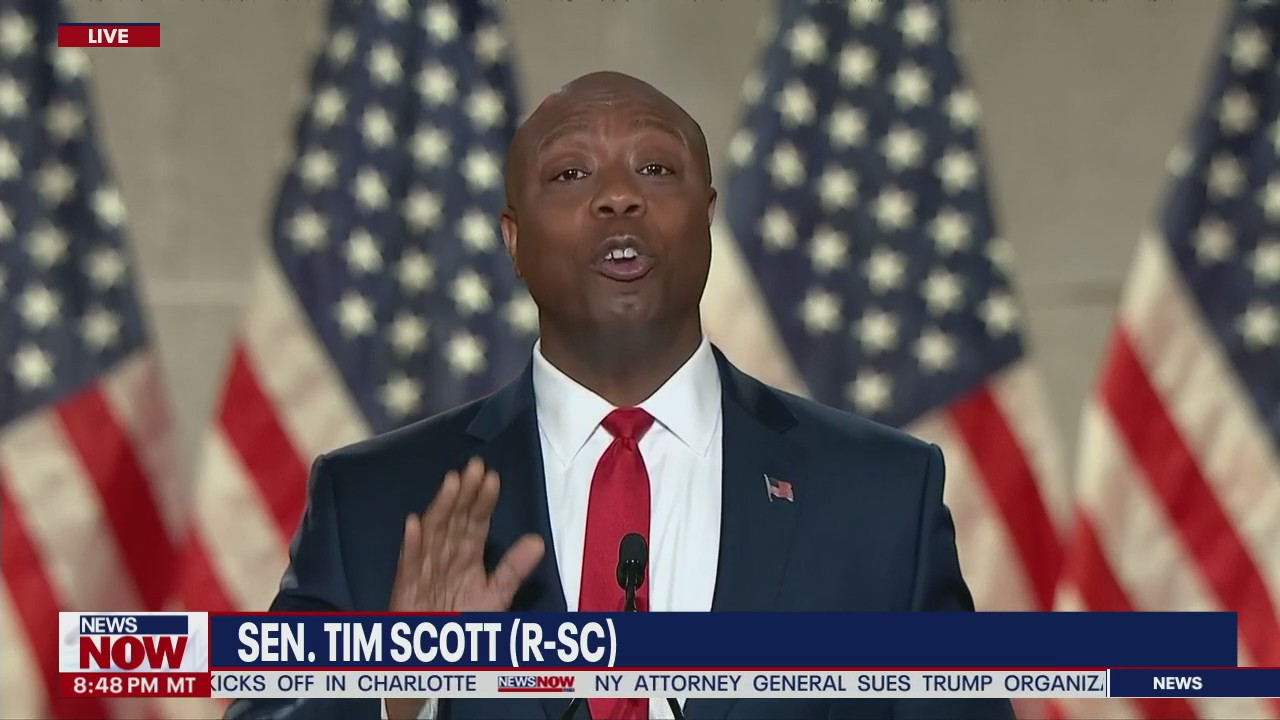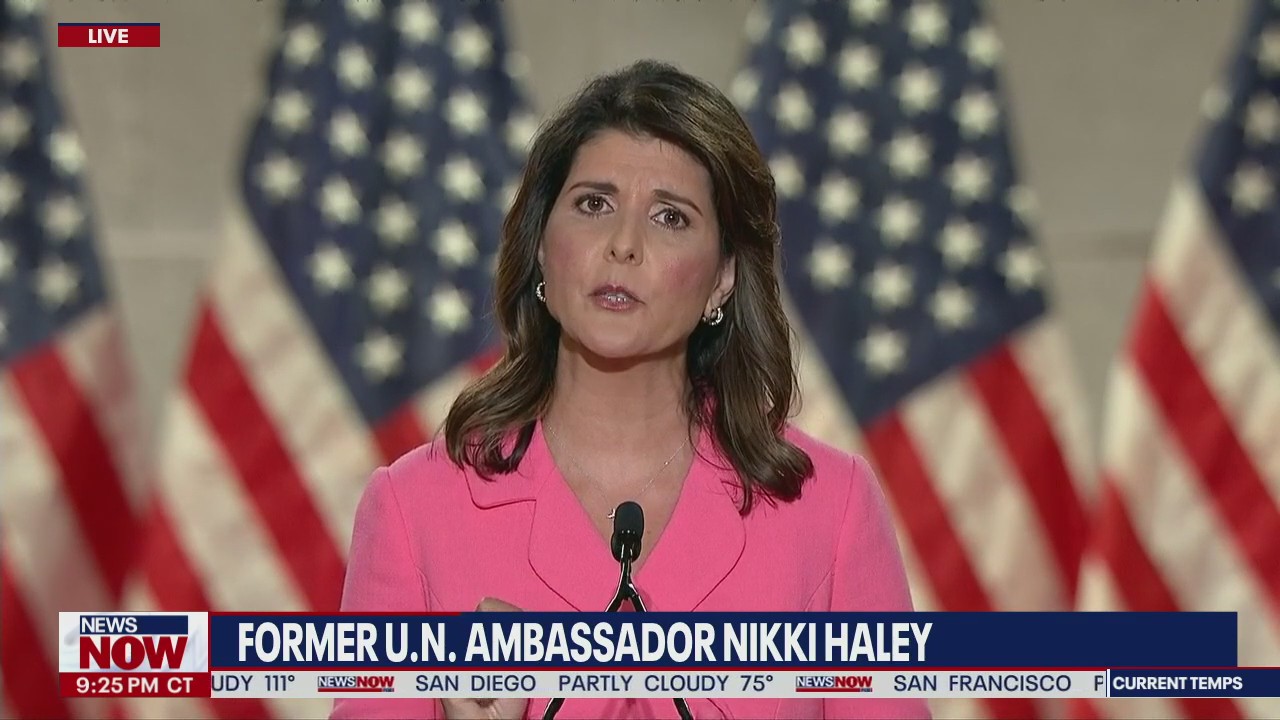SC Republicans Nikki Haley, Tim Scott cite racial progress in US at RNC
To close out the first night of the Republican National Convention, former U.N. Ambassador Nikki Haley and Sen. Tim Scott, two politicians with South Carolina roots, referenced their experiences growing up as people of color and offered mostly positive outlooks on the state of the country.
Scott, the Republican Party’s only Black senator, leveled the kind of personal attack against Joe Biden that Donald Trump and his white allies could not.“Joe Biden said if a Black man didn’t vote for him, he wasn’t truly Black. Joe Biden said Black people are a monolithic community," Scott charged.
He acknowledged that African Americans have sometimes been victimized by police brutality, but later said: “The truth is, our nation’s arc always bends back toward fairness. We are not fully where we want to be ... but thank God we are not where we used to be.”
Scott said he is living the American dream and cited “the evolution of the Southern heart" as the reason he, as a Black man, was able to win a primary election against a son of Strom Thurmond.
Scott was the closing speaker at the RNC on Monday. He recounted growing up in a single-parent household and failing out of ninth grade before finding a mentor and becoming a small-business owner.
Scott said any insinuation that America has gone backward is false. He talked about his 2010 primary win against Paul Thurmond, son of the segregationist senator, in a congressional race.
He said, “In an overwhelmingly White district, the voters judged me not on the color of my skin but on the content of my character.”
“We live in a world that only wants you to believe in the bad news, racially economically and culturally polarizing news,” Scott said.Haley said states like her native South Carolina have rebounded from racist violence, saying, “America is not a racist country.”
“In much of the Democratic Party, it’s now fashionable to say that America is racist,” Haley claimed.
Referencing the 2015 racially motivated shooting deaths of nine Black Bible study attendees by a White man at a historic African American church in Charleston, Haley noted that South Carolina didn’t erupt into the violence seen after some shootings of Black Americans in other cities.
Haley also took a spin off of the Black Lives Matter movement’s terminology, saying that the lives of Black police officers shot in the line of duty, Black small-business owners affected during rioting and “Black kids who’ve been gunned down on the playground – their lives matter, too.”
Haley is seen as one of the rising stars in the Republican Party, with a recent move back to South Carolina and a memoir sparking conversation that she may mount a presidential run of her own, possibly as soon as 2024. At the RNC Monday night, Haley said President Donald Trump and Vice President Mike Pence “have my support.”
In her two years at the United Nations, Haley managed to tread a careful path of occasionally speaking out against Trump while not directly drawing his ire.
That balancing act came into view, Haley writes in her memoir, in clashes with then-Secretary of State Rex Tillerson and then-White House Chief of Staff John Kelly, who she alleged once tried to get her to join them in opposing some of Trump’s policies, a move she called “offensive.”
Conversely, Haley wrote that she was “deeply disturbed” by the president’s comments that there were “very fine people on both sides” at the white nationalist rally and counterprotest in Charlottesville, Virginia, in 2017, saying that she “was certain he didn’t understand how damaging his remarks were.”
At the end of 2018, she left the Trump administration on her own terms, a decision that spawned speculation — which Haley quickly squelched — that she might challenge her soon-to-be-former boss in 2020.
Since then, Haley has demurred when asked about politics, even in news cycles that floated the notion of Trump replacing Vice President Mike Pence with Haley on the 2020 ticket.



